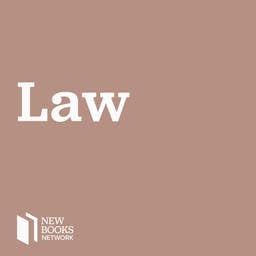"Sincerely held religious belief" is now a common phrase in discussions of American religious freedom, from opinions handed down by the US Supreme Court to local controversies. The "sincerity test" of religious belief has become a cornerstone of US jurisprudence, framing what counts as legitimate grounds for First Amendment claims in the eyes of the law. In Sincerely Held: American Secularism and Its Believers (U Chicago Press, 2022), Charles McCrary provides an original account of how sincerely held religious belief became the primary standard for determining what legally counts as authentic religion. McCrary skillfully traces the interlocking histories of American sincerity, religion, and secularism starting in the mid-nineteenth century. He analyzes a diverse archive, including Herman Melville's novel The Confidence-Man, vice-suppressing police, Spiritualist women accused of being fortune-tellers, eclectic conscientious objectors, secularization theorists, Black revolutionaries, and anti-LGBTQ litigants. Across this history, McCrary reveals how sincerity and sincerely held religious belief developed as technologies of secular governance, determining what does and doesn't entitle a person to receive protections from the state. This fresh analysis of secularism in the United States invites further reflection on the role of sincerity in public life and religious studies scholarship, asking why sincerity has come to matter so much in a supposedly "post-truth" era. Dr. Charles McCrary is a scholar of American religion, focusing on secularism, religious freedom, race, and science. His work has been published in academic journals including the Journal of the American Academy of Religion, Religion & American Culture, and Religion. He also has written for popular outlets such as Religion & Politics, The Revealer, and The New Republic, many of which are linked in the show notes of this episode. Before coming to ASU, he was a postdoctoral research associate at the John C. Danforth Center on Religion and Politics at Washington University in St. Louis. Read more by Charles McCrary: "The Supreme Court and the Strange Politics of the 'Sincere Believer,'" Religion & Politics, Apr. 2022 "The Antisocial Strain of Sincere Religious Beliefs Is on the Rise," The New Republic, Apr. 2022 "The Baffling Legal Standard Fueling Religious Objections to Vaccine Mandates," The New Republic, Sept. 2021 Learn more about your ad choices. Visit megaphone.fm/adchoices Support our show by becoming a premium member! https://newbooksnetwork.supportingcast.fm/law
Más
Menos
 55 m
55 m
 44 m
44 m 46 m
46 m 27 m
27 m 1 h y 4 m
1 h y 4 m Feb 13 20261 h y 6 m
Feb 13 20261 h y 6 m 55 m
55 m
